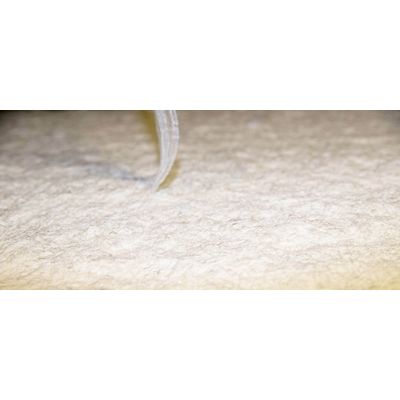

- Home
- Companies
- Celanese Corporation
- Products
- Cellulose Acetate Tow

Cellulose Acetate Tow
Cellulose acetate tow is a clean, soft, tasteless, and odorless product made from acetate flake. It is a biobased and environmentally friendly product which is derived from natural wood pulp.
Cellulose acetate tow fiber is derived from responsibly sourced renewable wood pulp which is highly purified white cellulose.
Cellulose acetate tow is a thermoplastic cellulose fiber with excellent absorption characteristics. Cellulose acetate tow is manufactured from wood pulp and is compostable and degradable. Celanese is one of the leading cellulose acetate tow producers in market.
Cellulose acetate tow is a thermoplastic cellulose fiber with excellent absorption characteristics. Celanese is one of the leading cellulose acetate tow manufacturers.
Sustainable Practices
Celanese is proud of our long, one-hundred-year history of producing cellulose acetate products for commercial applications. For nearly seventy years, we have manufactured cellulose acetate tow for filtration applications, primarily for tobacco products. Having the rich history that we enjoy, the importance of our commitment to sustainability cannot be understated. Learn more about Sustainability at Celanese.
Our cellulose acetate products are made using high purity wood pulp sourced from sustainably managed forests. Business is only awarded to suppliers that are certified by credited partners, such as FSC (Forest Stewardship Council) or PEFC (Programme for the Endorsement of Forest Certification) certifications. Click here to view our Dissolving Wood Pulp – Sustainable Sourcing Policy.
Sustainable practices do not end with our raw materials. We continue these standards with our own manufacturing practices which are designed to maximize the re-use of processing aids (e.g., an estimated 99% closed loop re-cycling of acetone solvent) and intermediate products (i.e., through recycling of “in-process” waste). Practices like the re-capturing of acetone also make our employees and plants safer by removing acetone vapor from the air during the solvent recovery process.
Biodegradability
The basic raw material used to manufacture cellulose acetate polymer (flake) is a plant-derived cellulose. Cellulose is the structural component of the primary cell wall of green plants such as trees, and makes up 40 to 50 percent of a tree’s composition. Most common sources of cellulose are dissolving-grade pulps derived from trees, sustainably grown and harvested in responsibly managed forests.
Cellulose acetate tow is a man-made fiber extruded from cellulose acetate flake. Unlike conventional plastics, it is not based on fossil sources. Cellulose acetate tow, like cellulose acetate polymer, is made from cellulose, the most abundant biopolymer in the world and is produced from bio-renewable non-food sources.
Celanese acetate tow, has been certified as biobased by DIN CERTCO (50-85%) and USDA.
Celanese acetate tow has received certification in the industrial and home composting environments by TUV Austria.
Celanese Acetate Tow has officially been certified biodegradable in the water environment by TUV Austria.
Biodegradability or certifications of materials alone do not resolve the fundamental problem of reducing the impact of littering; thus, the measures called for in the EU single-use plastics (SUP) directive remain as important and necessary to be adopted.
Cellulose Acetate Tow Properties:
- Soluble in many common solvents (especially acetone and other organic solvents)
- Can be modified to be soluble in alternative solvents, including water
- Hydrophilic, wets easily, with good liquid transport and excellent absorption
- In textile applications, it provides comfort and absorbency
Cellulose Acetate Tow Technical Attributes:
Selective absorption and removal of low levels of certain organic chemicals
Cellulose Acetate Tow Processing:
Easily bonded with plasticizers, heat, and pressure
